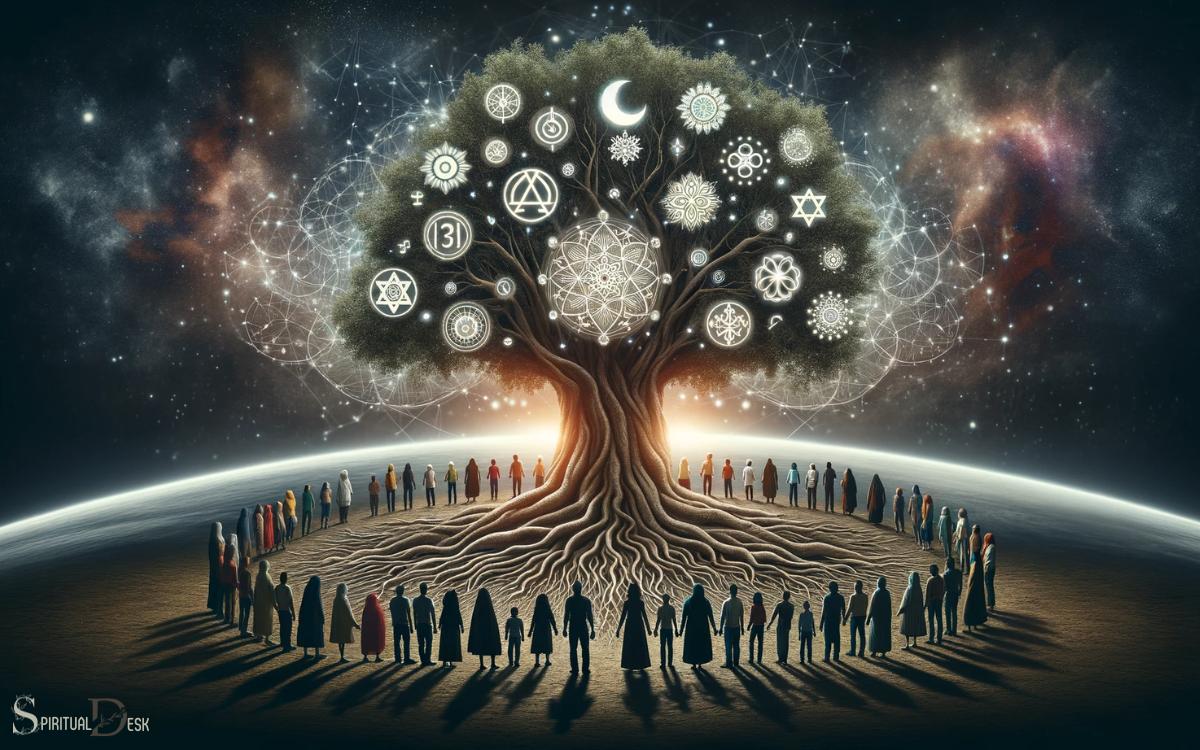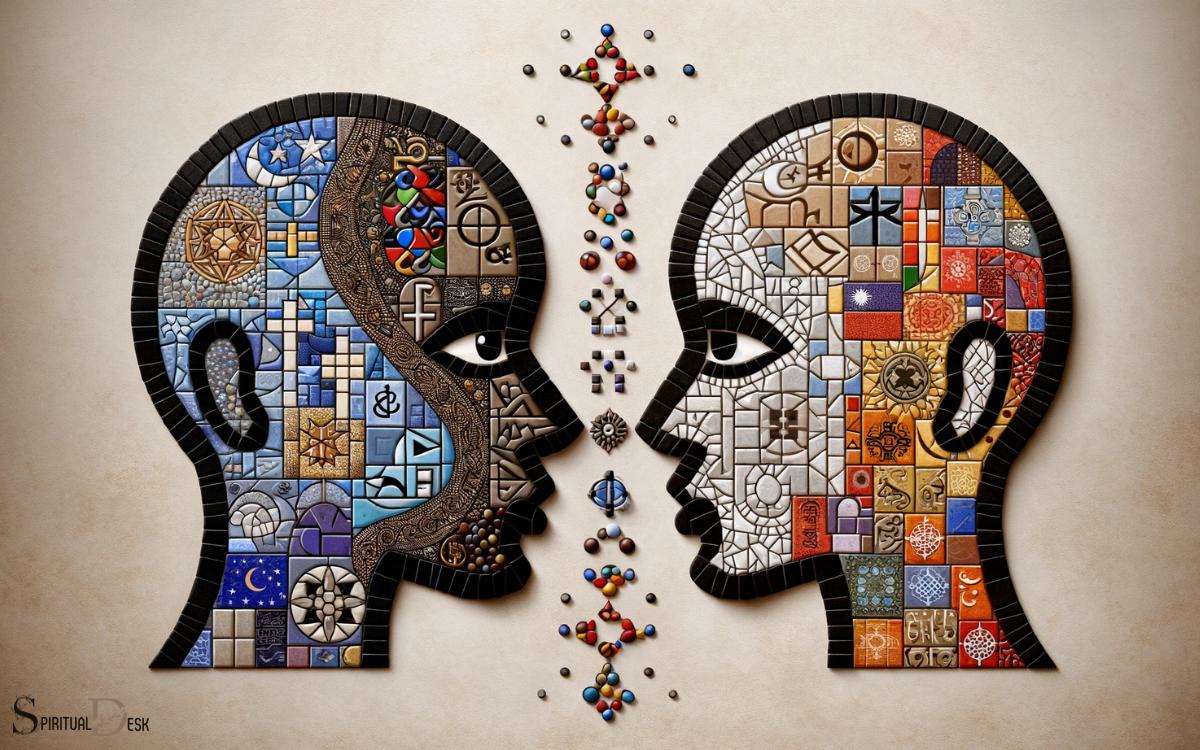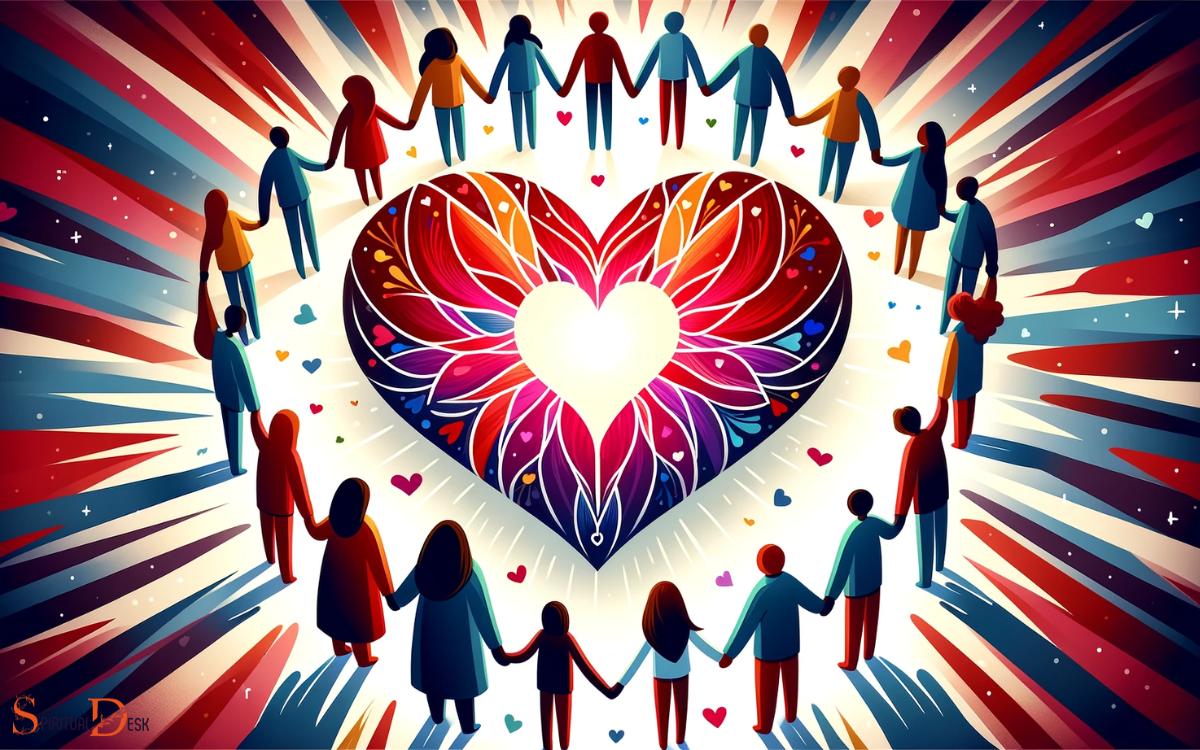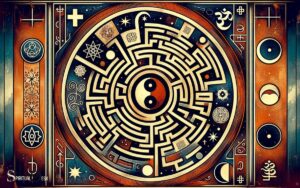Racism Is a Spiritual Problem? Find Out Here!
Racism is a spiritual problem as it strikes at the core of our shared humanity by denying the intrinsic worth of all individuals.
It is rooted in a lack of understanding, fear, and separation that disregards the spiritual truth that all humans are interconnected and equal in value.
Racism goes beyond mere social or psychological issues; it is a spiritual crisis that reflects a profound disconnection from the principle of oneness that many faiths and philosophies teach.
This spiritual ailment manifests when individuals or groups judge others based on race, leading to discrimination and systemic injustices.
By recognizing racism as a spiritual failing:
For instance, in many religious teachings, the concept of treating others as we wish to be treated � the Golden Rule � directly counters racist attitudes and behaviors.
Addressing racism as a spiritual problem invites us to undergo a deep, inner journey toward healing, fostering a world where every person is valued and respected.

Key Takeaway
9 Aspects: Understanding Racism as a Spiritual Issue
| Aspect | Description |
|---|---|
| Definition | Racism is the belief in the superiority of one race over another, often resulting in discrimination and prejudice against people based on their race or ethnicity. |
| Historical Context | Racism has roots in the historical exploitation and oppression of certain races, notably during colonialism and the slave trade. |
| Institutional Racism | This refers to the systemic policies and practices within institutions that disproportionately disadvantage certain racial groups. |
| Cultural Racism | This encompasses the cultural images and messages that affirm the assumed superiority of whites and the assumed inferiority of people of color. |
| Interpersonal Racism | This involves racial slurs, biases, and prejudiced thoughts or actions that occur between individuals. |
| Internalized Racism | Internalized racism is when individuals from marginalized groups begin to believe, accept, or live out the negative messages about their own abilities and inherent worth. |
| Impact on Society | Racism affects all areas of society, including politics, education, healthcare, and the justice system, perpetuating inequality and injustice. |
| Spiritual Dimensions | Many belief systems consider racism as contrary to the principles of equality and compassion, and recognize it as a moral and spiritual failing. |
| Overcoming Racism | This involves both systemic change through policies and laws, and personal actions such as education, self-reflection, and challenging racist behavior. |
Understanding Racism�s Spiritual Roots

Understanding Racism�s spiritual roots often goes unaddressed in discussions about social justice and equality.
However, it is crucial to delve into the underlying spiritual dimensions that perpetuate racism. At its core, racism stems from a distorted perception of the inherent worth and dignity of every individual.
This distorted perception is contrary to the spiritual principle of recognizing the divine spark in every human being.
When individuals fail to recognize this fundamental spiritual truth, it leads to the dehumanization and discrimination of others based on race.
Therefore, addressing racism necessitates not only social and systemic changes but also a profound spiritual transformation.
By acknowledging and confronting the spiritual roots of racism, we can work toward genuine reconciliation and create a more just and equitable society for all.
The Role of Belief Systems in Racism

Belief systems play a pivotal role in perpetuating racism, shaping individuals� perceptions, attitudes, and behaviors toward others based on race. This influence is significant as it can either challenge or reinforce racist ideologies.
When examining the role of belief systems in racism, it is crucial to consider:
- Cultural Conditioning: How societal norms and values are deeply embedded in belief systems, impacting how individuals perceive and interact with people from different racial backgrounds.
- Religious Interpretations: How religious teachings and interpretations can either promote inclusivity and equality or inadvertently perpetuate racial biases and prejudices.
Understanding the impact of belief systems on racism is essential in addressing and dismantling discriminatory attitudes and behaviors.
It requires a critical examination of how beliefs are formed, reinforced, and eventually transformed to foster a more inclusive society.
Healing Racism Through Spiritual Practices

Spiritual practices can frequently serve as powerful tools for addressing and healing the deep-seated roots of racism within individuals and communities.
Practices such as meditation, prayer, and mindfulness can help individuals confront their own biases and prejudices, fostering a deeper sense of empathy and understanding for others.
Through introspection and self-reflection, individuals can begin to dismantle the ingrained patterns of racism within themselves.
Additionally, engaging in spiritual practices within a community setting can facilitate open and honest conversations about race, providing a safe space for healing and reconciliation.
These practices can also inspire collective action toward dismantling systemic racism, as they encourage individuals to embody the values of equality, justice, and compassion in their interactions with others.
Ultimately, spiritual practices offer a pathway toward healing and transforming the pervasive impact of racism.
Overcoming Divisiveness With Spiritual Unity

One crucial aspect of addressing divisiveness and promoting unity is through fostering a collective sense of spiritual connectedness.
This spiritual unity can be achieved through:
Embracing empathy and compassion:
By recognizing the interconnectedness of all beings, individuals can cultivate empathy and compassion for others, transcending divisions and fostering a sense of shared humanity.
Practicing active listening and seeking to understand others� experiences can bridge differences and build solidarity.
Promoting inclusivity and diversity:
Embracing diverse spiritual practices and beliefs can create a sense of inclusivity and interconnectedness, fostering a spirit of unity that transcends racial, cultural, and religious divides.
Engaging in interfaith dialogue and collaboration can promote understanding and harmony among diverse communities.
Embracing Love and Compassion to Combat Racism

In the quest to combat racism, embracing love and compassion is paramount in fostering understanding and unity among all individuals.
By cultivating love and compassion, individuals can develop empathy and respect for others, regardless of their race or ethnicity. This approach can help dismantle the deep-seated prejudices and biases that fuel racism.
Embracing love and compassion encourages people to see each other as fellow human beings, deserving of equal rights and opportunities.
It promotes a sense of interconnectedness and shared humanity, leading to a more inclusive and harmonious society.
Through acts of kindness, understanding, and support, individuals can actively combat racism and promote a culture of acceptance and equality.
Conclusion
The spiritual roots of racism run deep, intertwined with belief systems and societal divisions. Overcoming racism requires embracing love, compassion, and spiritual unity.
Ironically, a problem rooted in hate can only be resolved through the very principles of love and unity that it seeks to destroy.
By acknowledging and addressing the spiritual dimensions of racism, we can work towards a more inclusive and harmonious society.






